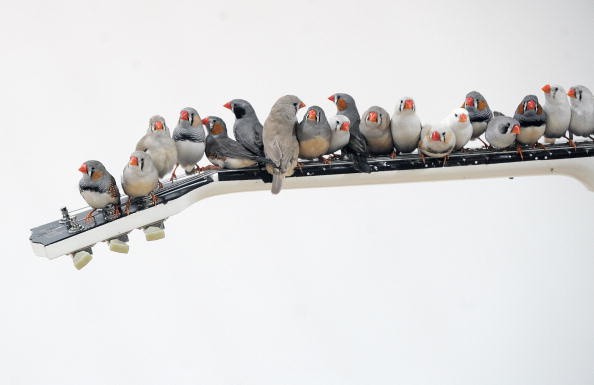Male zebra finches imitate their phenotypic traits while learning their song.
Each man creates his own distinctive song in order to be distinguished out from the herd.
For a long time, it was considered that zebra finches had no dialects because of their individual-specific song.
Specialists at the Max Planck Institute for Ornithology (Biological Intelligence, in foundation) have recently shown that the melodies of four separate zebra finch communities differ consistently using an artificial intelligence method.
They also revealed that the females' mate selection is influenced by these "secretive languages."
Female zebra finches, on the other hand, are more concerned with a cultural feature than with male attractiveness.
Zebra finch develops his own songs

Songbirds sing in a variety of styles. Males in several of the over 5000 songbird genera are true virtuosos, as per ScienceDaily.
They obtain different sounds during their lives and may thus modify their songs correspondingly, probably because this impressed the ladies the most.
Males in certain species, such as the yellowhammer, are far more stereotypical and homogeneous. They imitate their conspecifics' noises as accurately as possible, making it easy for anybody to detect the species.
Such species with "uniformist" song, on the other hand, frequently display diversity on a greater global scale.
All men sing the same song within an area, but songs differ between regions, and apparent borders may be detected when two languages meet.
A third form of singing bird is the zebra finch.
Males, like females, acquire their song from conspecifics and only at a young age, but they do it in a unique way.
Each guy creates his own little song, which he subsequently utilizes for the rest of his life, as if he wished to express his identity, his name.
Because of these distinct signatures in songs, it has long been considered that zebra finch dialect creation is impossible.
Wolfgang Forstmeier and Bart Kempenaers, along with colleagues, their PhD student Daiping Wang, and other members of their research group, have now used artificial intelligence to detect dialects in zebra finch songs.
To do so, the scientists used the songs of males from four different zebra finch populations to train a "Sound Classifier."
When the investigators gave the algorithm songs from succeeding generations, it was remarkably accurate in assigning them to the proper demographic.
They were really astonished by this conclusion, said Forstmeier, one of the study's two primary authors.
It appears that there exist cryptic dialects among zebra finches that were undiscovered by traditional research methods.
Mating finches
This would be the purpose of all the macho strutting and singing, however there are certain formalities to be followed, as per Omlet.
The cock bird is now watching the hen's body language to see whether she wants to mate with him.
The hen squats in the "mating posture" in Zebra finches (and many other species), raising and vibrating her tail.
After that, the male climbs her and impregnates her with a quick "cloacal kiss," wherein the two birds' all-purpose outlets make short connection.
As he presses on her, his wings will flap, and the process will be completed in a few seconds.
A healthy, non-hybrid finch will mostly generate a nest of two to eight eggs.
However, problems might arise in mixed aviaries and birdhouses.
Again, it's uncommon, but a cock bird can occasionally couple up with another male or court a female of a different species.
For the passionate bird breeder, neither option will end nicely.
Related article: Finches and Bad Parents: Why Some Birds Don't Listen
© 2026 NatureWorldNews.com All rights reserved. Do not reproduce without permission.





